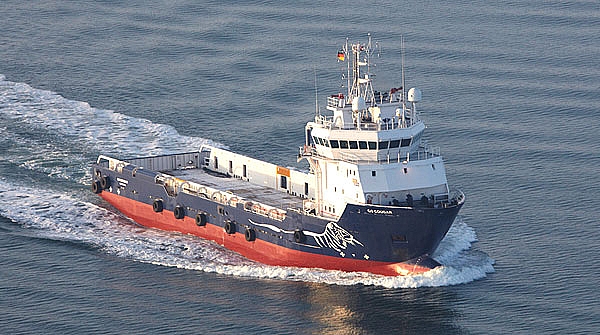Next year’s containerized freight contracts for the eastbound trans-Pacific lane are likely to settle at steep discounts to 2022 as spot pricing continues to slide on the back of large supply and demand imbalances.
Early indications from shippers and carriers alike who are preparing for the spring tendering season point to a firmly bearish sentiment with regards to significant spot market recovery in the short to medium term.
“My concern is what’s going to happen a few months from now when contracts are being discussed,” a US-based carrier source said. “… Shippers are going to want to leverage against spot and push their contracts down. Things will be more favorable for shippers now.”
As term contracts are typically settled at some discount to the spot price, all eyes are on the transitioning marketplace as a tempestuous import boom has left in its wake a plunging spot market.
Platts Container Rate 13, which follows the key Far East-to-WC North America trade, was assessed Nov. 28 at $1,250/forty-foot equivalent unit, the lowest assessment since March 13, 2020, and down 86.8% from the start of 2022.
The Platts Container Index, a weighted average of Platts’ key global assessments, dropped 77.2% from the start of the year Nov. 28 and was assessed at $1,656.07/FEU. The composite index peaked Sept. 8, 2021, at $7,645.37/FEU.
“The growth in US import volume has run out of steam, especially for cargo from Asia,” Hackett Associates said in its recent Global Port Tracker report, adding that reduced demand and spot rates “are putting pressure on carriers to maintain contract rates.” The consultant noted that carriers were removing capacity in a bid to stem rate declines and maintain profitability.
During March-April 2022, the period in which most trans-Pacific deals were inked, PCR13 averaged at $8,351/FEU, resulting in contracted freight prices averaging $6,500/FEU to $8,500/FEU, depending on terms and volume commitments.
As the spot market has continued to erode, sentiment holds that 2023-24 term rates will likely fall well below the prior year, with early estimates pegging rates between $1,500/FEU-to-$3,500/FEU.
Contract renegotiations
Many shippers have already successfully renegotiated existing term contracts with their carriers as the spot market tumbled in the second half of 2022 to levels well below contractual rates.
“As the spread between the contract rate in terms of dollar per TEU and the spot was increasing, we had to sit down and agree and revisit the pricing for those customers,” said Xavier Destriau, CFO with Israel-based carrier ZIM.
Some shippers who signed two- to three-year volume agreements have reported carriers as slightly hesitant to actively renegotiate rates.
“We’ve renegotiated many of our one-year contracts, but we have some carriers that are less cooperative, whose approach is that a contract is a contract,” a large US-based importer said.
Discussions to start early
While most shippers have been involved in adjusting contract rates, many are also looking at the upcoming year and mapping out their Minimum Quantity Commitment and quote requests to come to the table a bit earlier than in past years.
“I don’t know if people are going to wait until TPM to discuss,” a medium-sized appliance importer said. “People are still going to be nervous and aren’t going to want to get burned if they start discussions too late. With the market dropping, even if they would save $200 to $300 per box, it’s safer to leave some money on the table and not risk being the cheapest rate on the ship, [to] make sure my stuff is going to move.”
Last year, carriers were able to successfully implement more stringent requirements around free time, penalties and unfulfilled quotas, strengthening what have been historically unenforceable contract terms. While liners will likely not have the same pricing power as 2021, many market participants think that enforceable terms will be firmly sought after on the part of the carriers.
“Although the carriers will certainly be on their heels during this round of negotiations, they will still do what they can to enforce what they can with rate levels likely to be much lower than only a year ago,” said Stephanie Loomis, VP of procurement with CargoTrans.
Source: Hellenic Shipping News





